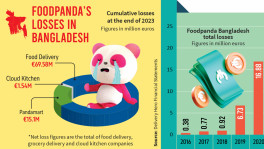Billionaire economy is booming with private jets in short supply
Demand for superyachts, mansions and planes is soaring, driven by cheap debt and rising wealth

Bombardier's Global 5500 has a top speed of 594 miles per hour and can fly nonstop from Los Angeles to Moscow.
Available for about $45 million, the twin-engine jet can easily touch down on tricky airfields and accommodate a dozen or so passengers.
Michael Spencer, the billionaire NEX Group founder, got one this year. He's one of the lucky few to snag a new jet as private aircraft makers strain to keep up with record demand from the burgeoning ranks of the ultra-rich.
"The market is in a position where it has never been before," said Christopher Marich, co-founder of MySky, an online management platform for jet owners. "For every aircraft out there, there's two or three buyers for popular models."
Representatives for Spencer didn't respond to requests for comment.
Billionaires Economy
The hunger for pricey jets is just the latest example of the booming billionaires economy, where demand for mansions, boats and many collectibles has surpassed pre-Covid levels.
The number of superyachts sold this year through mid-October increased by about 60% to 523 from the same period last year, according to research from SuperYacht Times. More than a quarter of those purchases were for new vessels.
Meanwhile, prices for some of the world's costliest homes are soaring. Venture investor Marc Andreessen just spent $177 million on an estate in Malibu. Private equity titan Leon Black paid a more modest $28 million for a mansion in one of London's most exclusive neighborhoods.
"The world's truly wealthy seem to be traveling again and wanting to do things," said Paul Welch, founder of MillionPlus.com, an online marketplace for luxury property, yachts and jets. "I've got people buying real estate in London from Indonesia, Canada and Hong Kong."
Among those splurging are the billionaires behind London-based chemicals giant Ineos, Jim Ratcliffe, Andy Currie and John Reece. They've bought at least two Gulfstream jets and an Airbus SE helicopter between them since the start of 2020 through companies they control, regulatory filings show. The executives' firms are now registered owners of more than a half-dozen aircraft including a new Gulfstream G600 that typically has a list price of about $55 million.
An Ineos spokesman said the closely held company's aircraft has been vital to help senior management do essential travel during the pandemic, adding the firm tries to conduct business virtually wherever it can.
While the pandemic itself has fueled interest in minimal-contact travel and leisure, the main engine of the craze for extravagant toys is surging wealth. The world's 500 richest people added $1.2 trillion to their fortunes this year through October, according to the Bloomberg Billionaires Index, powered by booming stock markets and central banks flooding economies with new money.
Such forces have also spawned dozens of new billionaires this year, minted from initial public offerings, SPAC deals, cryptocurrencies and company mergers.
With interest rates hovering near record lows, the ultra-rich are also frequently turning to credit to fund purchases. Spencer, who invests through his family office IPGL following the $5.5 billion sale of his financial services firm to CME Group in 2018, got a loan from Credit Suisse Group AG for his new Bombardier, according to filings.
Morgan Stanley, Bank of America Corp. and JPMorgan Chase & Co. are among the banks that reported jumps this year in the value of asset-backed loans they've extended to clients. The loans, usually borrowed against homes or stakes in public or private companies, provide the wealthy with cash to pay for their lifestyles without having to sell assets.
Lending balances at UBS Group AG's US wealth-management business grew to $87.5 billion in the third quarter, a 27% increase from a year earlier. Niche lenders are experiencing the uptick too. Vivek Kaushal, chief executive officer of aircraft-finance specialist Global Jet Capital, said his business is poised to exceed pre-pandemic levels as demand for financing rises.
"The whole market is growing," he said.
In the US, the private jet industry's biggest market, tax incentives have also driven demand. The nation's 2017 tax bill allowed buyers to write off the full amount of their new plane's cost on their federal tax returns, making a private jet affordable for more wealthy Americans.
The number of private flights departing this year through mid-October from Teterboro Airport in New Jersey, the country's busiest private-jet hub, was up 61% from a year earlier, according to aviation data company, WingX.
In Europe and Asia, demand for private aviation is picking up as more nations reopen borders. Worldwide, private jet travel was 19% higher last month compared to October 2019, according to WingX, putting the industry on track for its busiest year ever.
Wealth Backlash
Still, there are mounting indicators the boom times for billionaires may be peaking. Popular discontent with widening wealth gaps has emboldened lawmakers worldwide to hike taxes on the wealthy, though a proposal for a "billionaire's tax" in the US, was shortlived.
Interest rates are beginning to rise, and China has put its richest citizens on notice with its "common prosperity" push to reverse inequality, evidenced in authorities' pressuring of China Evergrande Group Chairman Hui Ka Yan to dip into his own pocket to stave off default at the embattled property developer.
The upswing in private jet travel has also coincided with heightened awareness about the planes' inordinately large carbon footprint per passenger. Greenhouse-gas emissions from private jets are rising faster than those from commercial jetliners, according to research published this year by Brussels-based campaign group Transport & Environment.
Private aviation firms offer carbon offsetting programs to combat concerns over emissions, with some aiming to be carbon-neutral this decade. Private jets account for about 2% of the total greenhouse gases generated by air travel, but their levels are set to rise as the growing ranks of super affluent increasingly embrace flying private.
"More people are ready to buy an aircraft," said MySky's Marich. "More people are starting at the top as well."
Disclaimer: This opinion first appeared on Bloomberg, and is published by special syndication arrangement.


 Keep updated, follow The Business Standard's Google news channel
Keep updated, follow The Business Standard's Google news channel
















